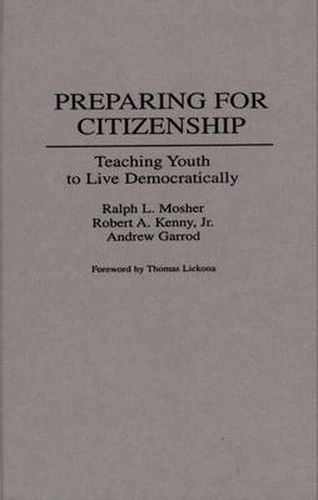Readings Newsletter
Become a Readings Member to make your shopping experience even easier.
Sign in or sign up for free!
You’re not far away from qualifying for FREE standard shipping within Australia
You’ve qualified for FREE standard shipping within Australia
The cart is loading…






Understanding democracy, learning to be democratic and to value democracy are critical competencies to be developed by all Americans. In the present debate about what knowledge is of most worth in the public school, these civic competencies are seen as second in importance only to the development of critical thinking. They are typically, however, honored more in commencement rhetoric than in school programs or practices; their actualization falls far short of their ascribed importance. The authors argue that critical opportunities for democratic development occur in the day-to-day life of the schools. It follows that all grade levels should participate in the creation of the constitution of the school and classrooms, the justice structure of the school (its disciplinary code, norms, and adjudication), the policy-making of the school, and in the understanding of the school as a social laboratory. The authors demonstrate the effectiveness of such a program by reporting some two decades of applied research on democratic schools which have realized some of these outcomes.
$9.00 standard shipping within Australia
FREE standard shipping within Australia for orders over $100.00
Express & International shipping calculated at checkout
Understanding democracy, learning to be democratic and to value democracy are critical competencies to be developed by all Americans. In the present debate about what knowledge is of most worth in the public school, these civic competencies are seen as second in importance only to the development of critical thinking. They are typically, however, honored more in commencement rhetoric than in school programs or practices; their actualization falls far short of their ascribed importance. The authors argue that critical opportunities for democratic development occur in the day-to-day life of the schools. It follows that all grade levels should participate in the creation of the constitution of the school and classrooms, the justice structure of the school (its disciplinary code, norms, and adjudication), the policy-making of the school, and in the understanding of the school as a social laboratory. The authors demonstrate the effectiveness of such a program by reporting some two decades of applied research on democratic schools which have realized some of these outcomes.